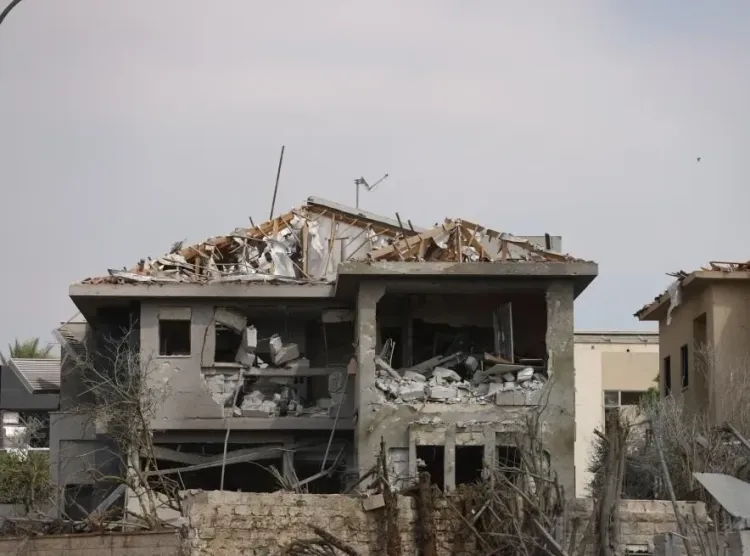Did Israel Launch New Raids on Iran After Intercepting a Missile?

Synopsis
Key Takeaways
- Israel conducted airstrikes on Iranian military sites.
- Over 15 warplanes were involved in the operation.
- The airstrikes were a response to an Iranian missile launch.
- Iran's leadership has vowed retaliation against Israel.
- The conflict risks escalating further, affecting regional stability.
Jerusalem, June 23 (NationPress) Israel executed a fresh series of airstrikes on Iran early Monday, shortly after successfully intercepting a missile that had been launched from Iran, according to the Israeli military.
The Israeli Air Force targeted what it identified as "military infrastructure locations" in the Kermanshah province of Iran, hitting facilities used for storing and launching surface-to-surface missiles, as stated in a military report. Over 15 warplanes were involved in this operation.
These strikes occurred just after Iran launched a missile at Israel before dawn, causing air raid sirens to sound throughout much of the nation. The Israeli military reported that the missile was intercepted without resulting in any casualties or material damage.
This Iranian missile attack followed comments from US President Donald Trump regarding a potential regime change in Iran, while US bombers and submarines were engaged in intensive strikes against Iranian nuclear facilities, as reported by the Xinhua news agency.
In response to the US strikes on Iranian nuclear sites, Iran's Supreme Leader Ayatollah Ali Khamenei stated that the retribution against Israel, referred to as the "Zionist enemy," would persist.
Labeling the assaults as "a grave crime," Khamenei warned of impending retaliation.
In comments made to X, he remarked, "The punishment continues. The Zionist enemy has made a significant mistake, committed a grave crime; it must face consequences, and it is currently facing them."
The US strikes followed Israeli attacks on June 13 that targeted multiple sites in Iran, including nuclear and military installations, resulting in the deaths of several senior commanders, nuclear scientists, and civilians, according to the Xinhua news agency.
Iran has retaliated with missile and drone strikes directed at Israel.
Earlier on Sunday, Israeli Prime Minister Benjamin Netanyahu declared that Israel would persist with its military operations. "Israel will continue to operate vigorously in both Iran and Gaza," he asserted, pledging not to be "drawn into a war of attrition."
"This historic operation will not cease until our objectives are achieved," Netanyahu affirmed.
Meanwhile, reports indicated that a day after the US strikes on Iran's nuclear facilities, the Iranian parliament voted in favor of closing the Strait of Hormuz, a crucial chokepoint for global oil transport. However, any final decision regarding retaliation will be made by the country's Supreme National Security Council.
The US strikes on three Iranian nuclear sites—dubbed "Operation Midnight Hammer"—in Isfahan, Fordow, and Natanz mark the first direct involvement of America in the escalating tension between Iran and Israel.









